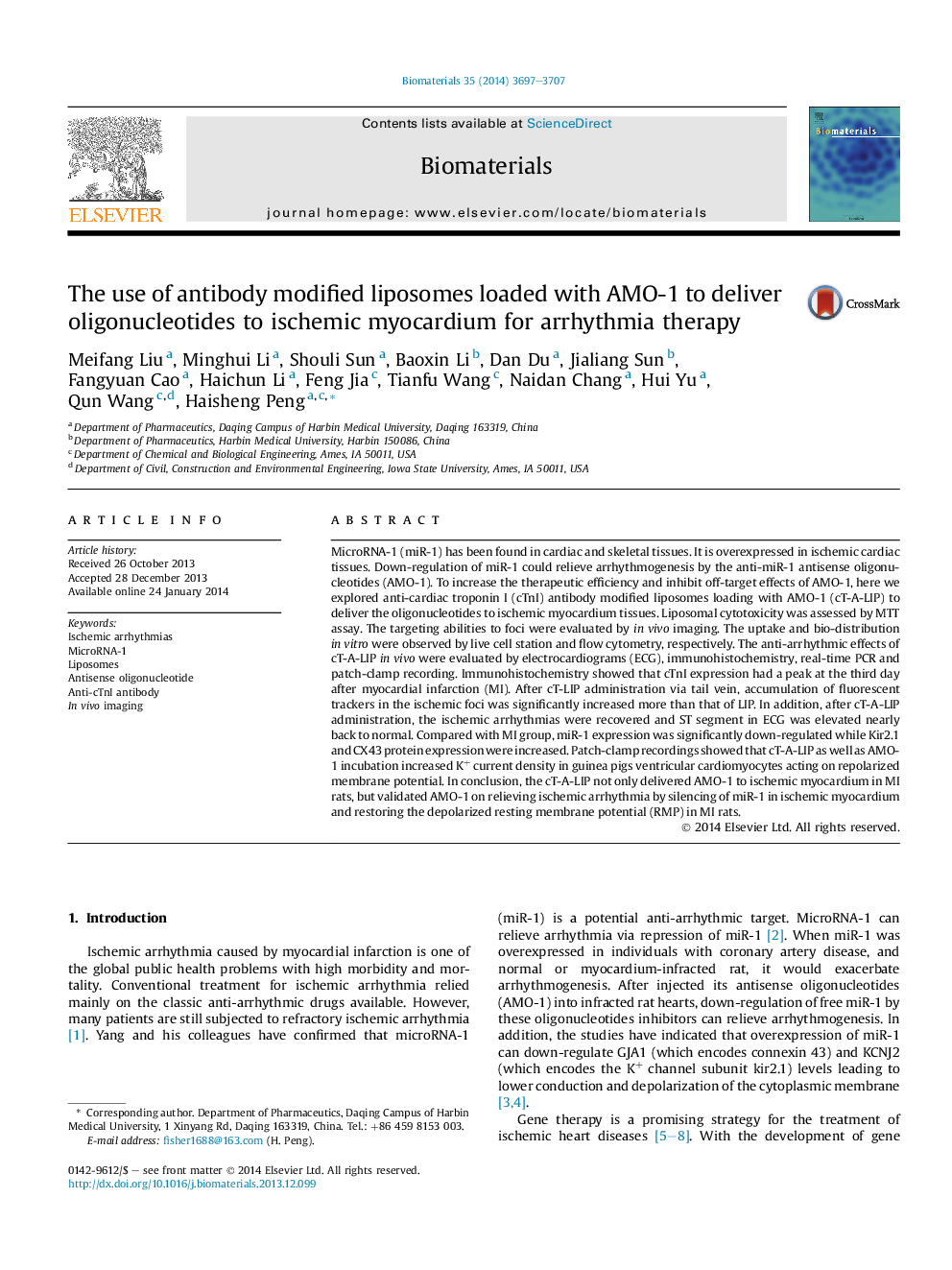| Article ID | Journal | Published Year | Pages | File Type |
|---|---|---|---|---|
| 10228301 | Biomaterials | 2014 | 11 Pages |
Abstract
MicroRNA-1 (miR-1) has been found in cardiac and skeletal tissues. It is overexpressed in ischemic cardiac tissues. Down-regulation of miR-1 could relieve arrhythmogenesis by the anti-miR-1 antisense oligonucleotides (AMO-1). To increase the therapeutic efficiency and inhibit off-target effects of AMO-1, here we explored anti-cardiac troponin I (cTnI) antibody modified liposomes loading with AMO-1 (cT-A-LIP) to deliver the oligonucleotides to ischemic myocardium tissues. Liposomal cytotoxicity was assessed by MTT assay. The targeting abilities to foci were evaluated by in vivo imaging. The uptake and bio-distribution in vitro were observed by live cell station and flow cytometry, respectively. The anti-arrhythmic effects of cT-A-LIP in vivo were evaluated by electrocardiograms (ECG), immunohistochemistry, real-time PCR and patch-clamp recording. Immunohistochemistry showed that cTnI expression had a peak at the third day after myocardial infarction (MI). After cT-LIP administration via tail vein, accumulation of fluorescent trackers in the ischemic foci was significantly increased more than that of LIP. In addition, after cT-A-LIP administration, the ischemic arrhythmias were recovered and ST segment in ECG was elevated nearly back to normal. Compared with MI group, miR-1 expression was significantly down-regulated while Kir2.1 and CX43 protein expression were increased. Patch-clamp recordings showed that cT-A-LIP as well as AMO-1 incubation increased K+ current density in guinea pigs ventricular cardiomyocytes acting on repolarized membrane potential. In conclusion, the cT-A-LIP not only delivered AMO-1 to ischemic myocardium in MI rats, but validated AMO-1 on relieving ischemic arrhythmia by silencing of miR-1 in ischemic myocardium and restoring the depolarized resting membrane potential (RMP) in MI rats.
Related Topics
Physical Sciences and Engineering
Chemical Engineering
Bioengineering
Authors
Meifang Liu, Minghui Li, Shouli Sun, Baoxin Li, Dan Du, Jialiang Sun, Fangyuan Cao, Haichun Li, Feng Jia, Tianfu Wang, Naidan Chang, Hui Yu, Qun Wang, Haisheng Peng,
